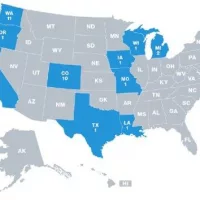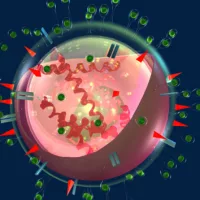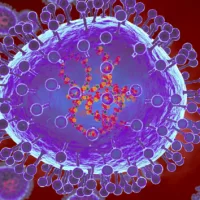
(WASHINGTON) — There may have been nearly 17 million undiagnosed COVID-19 cases in the United States in the early months of the coronavirus pandemic, according to a new National Institutes of Health study.
The study suggests that the prevalence of COVID-19 in the spring and summer of 2020 “far exceeded” the number of confirmed cases — especially in people who were asymptomatic.
“A hallmark of the coronavirus pandemic is that there are people infected with the virus that causes COVID-19 who have few or no symptoms,” Dr. Matthew Memoli, director of the Laboratory of Infectious Diseases Clinical Studies Unit at the National Institute of Allergy and Infectious Diseases, which participated in the research team, said in a statement. “While counting the numbers of symptomatic people in the United States is essential to contend with the impact of the pandemic and public health response, gaining a full appreciation of the COVID-19 prevalence requires counting the people who are undiagnosed.”
The NIH report, which was published this week in Science Translational Medicine, represents the first data from a 12-month study launched in April 2020.
By analyzing blood samples of more than 8,000 people who were not previously diagnosed with the virus — along with socioeconomic, health and demographic data — NIH researchers estimated that for every diagnosed COVID-19 case during the spring and summer of 2020, there were 4.8 undiagnosed cases — representing an additional 16.8 million cases.
“The estimate of COVID-19 cases in the United States in mid-July 2020, 3 million in a population of 330 million, should be revised upwards by almost 20 million when the percent of asymptomatic positive results is included,” senior co-author Kaitlyn Sadtler, chief of the Section on Immunoengineering at the National Institute of Biomedical Imaging and Bioengineering, an NIH institute that was part of the research team, said in a statement. “This wide gap between the known cases at the time and these asymptomatic infections has implications not only for retrospectively understanding this pandemic, but future pandemic preparedness.”
Blood samples were collected from 8,058 volunteer participants primarily between May 10 and July 31, 2020, which were then analyzed to detect antibodies against COVID-19. Of the approximate 8,000 blood samples, 304 contained antibodies.
Based on those findings, the researchers estimated that 4.6% of U.S. adults had undiagnosed cases of COVID-19 during their study period — which was also at a time when labs were still reporting a shortage of supplies and personal protective equipment needed to test patients.
Black respondents had the highest estimated rate of positive COVID-19 antibody tests (14.2%), followed by Native American/Alaska Native (6.8%), Hispanic (6.1%), white (2.5%) and Asian (2%) respondents, researchers found. When comparing age groups, the youngest participants — those between the ages of 18 and 44 — had the highest estimated rate, at 5.9%, the study found.
“The information will be invaluable as we assess the best public health measures needed to keep people safe, as new — and even more transmissible — variants emerge and vaccine antibody response changes over time,” NIBIB Director Bruce Tromberg said in a statement.
Dr. Rochelle Walensky, director of the Centers for Disease Control and Prevention, recently warned that a highly contagious variant first detected in India could soon become the dominant strain in the U.S. The so-called delta variant has been detected in nearly every state, according to the CDC.
NIH researchers are currently following up with the study participants to evaluate the presence of antibodies after six and 12 months, as well as antibody reactivity to variants of concern, the medical research agency said.
Copyright © 2021, ABC Audio. All rights reserved.















